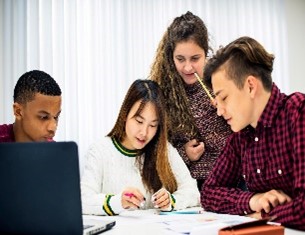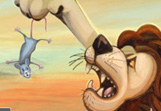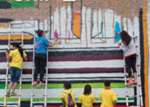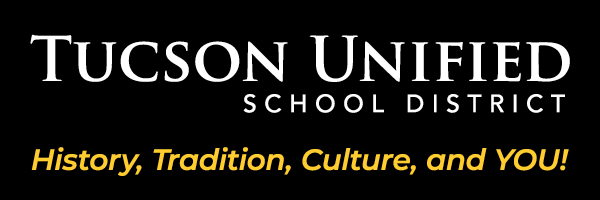3rd Grade ELA Course
Question 1: In what ways do our choices as readers and writers empower us to learn, connect, and make sense of new ideas?
We are beginning to use reading to gain new knowledge independently. We establish our classroom procedures and routines, fostering independent thinking, reading and writing to learn. Students will review phonics patterns, syllable understandings and inflectional endings to prepare for studying word parts to unlock meaning.

In this unit, we learn how living things develop and pass down features or traits for survival in their environment. Students draw inferences from evidence in text and use context clues to determine the meaning of unknown words. Long and short vowel patterns are reviewed to develop mastery in reading longer words and spelling.

Every action has a consequence, and characters’ actions can shape the plot of a story. Students describe how characters contribute to events through their choices and refer to specific parts of a text to support their ideas. We practice reading fix-up skills such as rereading to clarify or confirm and reading out loud to support expression and comprehension.

In this unit, we learn that there are many ways to participate in government, including voting, petitioning leaders, and serving as a volunteer. We learn about the ways people in the U.S. work to gain rights and increase fair treatment. Using comprehension strategies, we describe changes in government over time, distinguishing between important and less important information.

In life, we learn about ourselves – and others – by examining and respecting others’ perspectives. Authors (including students) can explore the same characters and situations using different points of view. We ask questions and create mental images from stories they read to better understand other points of view. We also learn how a play is a literary form with unique features for storytelling.

Technology can influence, and even change, the way we live, work, communicate, play and learn. It allows us to connect with people and cultures across the globe. In this unit, we learn to describe cause/effect relationships and connections in text, comparing two texts on the same topic. We also learn about the structure of poetry as we explore various types of text.

In this unit, we can learn problem-solving and decision-making skills by thinking about characters’ actions and their consequences. Authors can approach real-life themes in a variety of settings with different plots and characters. We learn how to effectively summarize text, determining the central message or lesson of a story. In writing, we practice using coordinating conjunctions to join ideas as we share our opinions.

Communities are impacted by history, culture and geographical location; each having its own unique, defining characteristics. In this unit, we learn about urban, suburban and rural areas where people work and live in communities. As we read, we think about the author’s purpose and how the author supports specific points with reasoning. This helps us develop narrative writing that conveys our story to others.

Earth has different climate zones with distinct seasons and weather patterns. Scientists observe and record weather patterns over time to understand each region's climate. We learn about how weather and climate affect people’s lives, noting cause and effect relationships in stories and informational texts. We use information gained from text to share research on a related topic, using vocabulary and reasoning.

Personal decisions influence how and why people spend money or interact to sell different goods or services. We explore the impact of economic resources (time and money) on making the best decisions in life and/or business. We apply comprehension strategies as we read to think about what we can learn from situations, characters and lessons in a story or informational text, developing a multimedia presentation to share our learning.

Humans use our knowledge of forces and interactions to engineer solutions to problems. By observing and measuring patterns of motion, we predict how things will move and may impact lives. In this unit, we distinguish literal from nonliteral language to ensure understanding of interactions between forces, characters and ideas. We expand our writing by using subordinating conjunctions, reflecting on the variety of writing we have accomplished.

We are here to equip, inspire and enrich the strengths of all learners with relevant educational experiences for lifelong learning.
Every day we strive to provide a world-class education that is equitable, empowering and inspiring for all.
Learn more about our programs & resources.
C&I Department
520-225-6282
1010 E. Tenth St. (map)




